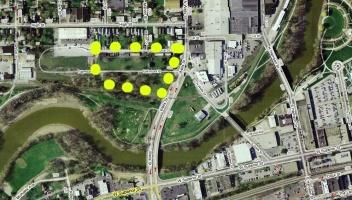
‘Not in my backyard’ or NIMBY as some have dubbed it, is a phrase uttered whenever development or projects are opposed by a neighborhood or group of citizens.  It has come to have negative connotations that negate the valid arguments made against unwanted projects and developments.  This phrase hase popped up several times during the discussion of the Charis House project, but most recently in a reader’s comments about a post I’d written about the Charis House/Fairmount Place controversy.  She ended her comments about the opposition to the Charis House by saying it is about ‘Not in my backyard’.
In July, 1975, a battle raged over plans to open an adult bookstore in the 900 block of Broadway. Â The location was next to the Alter Pharmacy in the far corner of the above building which is now owned by Broadway Christian. Â This is in the West Central Neighborhood.
The owner of the adult bookstore, Greg Myers, was denied an occupancy permit. He stated that then Mayor Ivan Lebamoff had ordered the City’s Division of Long-range Planning and Zoning not to issue the permit which several employees in the department confirmed. The Mayor’s office responded that several reports on the book store had not been filed by city departments. Â In the meantime, the Fort Wayne City Council introduced and passed, in a special session, an ordinance declaring a moratorium on the opening of any new adult bookstores in the city – the day after the bookstore had opened. Â The surrounding neighborhood and businesses were supportive of this ordinance and the instigators of the legislation.
When introducing the measure, Councilman Sam Talarico Sr., stated that:
[…] families in the West-central area had worked hard to increase the values of their homes and didn’t want to see those values drop, which they would with the establishment of an adult bookstore in the neighborhood.
Talarico further charged that adult bookstores downtown would steer families away and in this way impede the beautification and development of downtown Fort Wayne.
A little later in the article:
Second District Councilman Donald Schmidt said he voted for the measure because it gives neighborhood residents ‘control over their environment.’
Let us be clear about something before we proceed further. Â BY NO MEANS am I equating the proposed Charis House development with an adult bookstore. Â However, some of the arguments (noted in italics) made almost 35 years ago echo those made recently in regards to the Charis House project. Â The obvious difference is that no one thought negatively of the West Central Neighborhood for not wanting this business in their area. Â And yes, I know that an adult bookstore is about as far removed from the good that the proposed Charis House facility would accomplish, if built, as you can get. Â
The point is, citizens have a right to protest developments/projects that do not fit their neighborhoods – no matter the benefits or harm that come with such developments. Â This is one of the reasons why we have zoning laws – to control types of development in areas with certain zoning classifications. Â Otherwise, you’d have a factory, house, convenience store, apartment building, animal boarding facility and who knows what else all in the same immediate area – or an adult bookstore next to a church and school.
The reader who took issue with my comments also talked about her opposition to building a flood control wall in the Thieme Drive area. Â While I completely understand and agree with the arguments made for not building the wall, the bigger picture is that such a wall would cut down on the City’s flood fighting expenses when that area floods. Â That would certainly make such a wall a ‘greater good’ project; Â yet, she has a right to protest this project if it does not fit her vision of the neighborhood without being unfairly vilified. Â So do the people in the Wells Street area affected by this project.

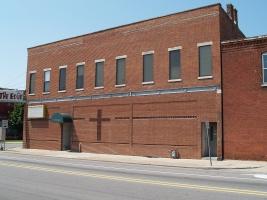
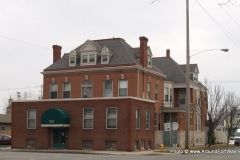


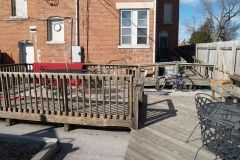






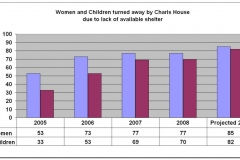

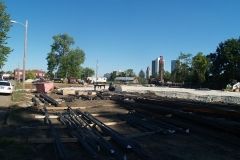
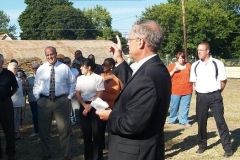

I do agree that there should be laws keeping certain industries out of residential neighborhoods. A hog farm or a oil refinery does not belong in a residential neighborhood. But residents in a neighborhood do not have the right to exclude anything or anyone they wish. Do people have a right to force Walgreens to stop selling birth control? Should they really have that much control over the surrounding area?
Do they have the right to protest? Sure! But the right to protest includes the right to vilify. I recognize the right of people to call me a corporate tool, and I reserve the right to call them any name I choose.
Yes, the right to protest includes the right to vilify, but with that right comes responsibility. Note what I said, “unfairly vilified”. To say this issue only revolves around the opposition not wanting a homeless shelter in their back yard is unfair. There are many other valid factors in this particular situation that should also be considered.
Steve:
You did not address my arguments which I presented that challenge the reasons given by the Wells Street merchants. If we are simply looking at the right to protest something in a specific neighborhood, then fine, citizens can do that.
I understand that the merchants have the right to protest. But what I would like to know is how much opposition was presented to other businesses that were nonconforming such as the two strip malls with convenience stores located in them.
I also think using the word “vilify” is a bit strong. That word did not cross my mind when I wrote my comments. And, just a thought here, when anyone then protests anything, doesn’t it become a “not in my backyard issue?” After all, when people don’t want a business or structure or anything, it then is a NIMBY.
Charlotte,
This post, that you are responding to here, is about the NIMBY issue. If you want to see how I responded to your arguments, look at the other post which contains my response to your comments.
As far as opposition to other developments in the area, again, I refer you to the above referenced comments/post. The Corridor’s Business Association as it now stands did not exist but only in the past couple of years. I think the developments you are referencing predates the current association. Yes, some of the business owners that may have been around during those other development’s genesis are now involved with this, but there is strength in numbers.
As far as the word “vilify”, read what I wrote again: “…yet, she has a right to protest this project if it does not fit her vision of the neighborhood without being unfairly vilified.” I did not say that you had vilified anyone. However, anyone making this into an issue, as we heard at least one person do in the public hearing before the City Council regarding this matter, (ie ‘you’re putting economic development over human development’) that type of sentiment is vilification.
Perhaps I should have just come out and said that no, I don’t think it’s all a NIMBY. If it is simply that a project is not wanted, then you’re absolutely right, it is a not in my backyard. But if it’s about planning, zoning or other valid arguments – like cutting off access to other properties – then it shouldn’t be negated by saying, “It’s just NIMBY.” That’s the problem I have with NIMBY.